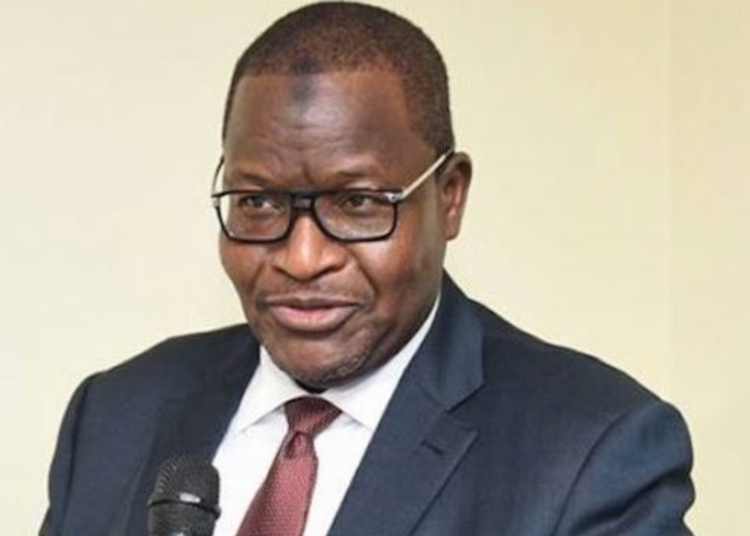Radio frequency spectrum is one of Nigeria‘s key natural resources of great economic value as a result of its direct application in telecommunications, broadcasting, military operations, and scientific research in addition to a range of other socioeconomic activities such as social services, law enforcement, education, healthcare, transportation, etc.
As a result, many industries depend heavily on the efficient utilization of radio frequency spectrum. These crucial factors therefore, make it mandatory for the government to develop comprehensive and clear-cut policies that will ensure that spectrum resource is optimally utilised for the overall benefit of the nation.
As an agency of government, the Nigerian Communications Commission (NCC), the national telecommunications regulatory agency, is charged with the responsibility to develop and adopt polices in accordance with the following policy objectives that will ensure that this scarce resource is well managed in its area of responsibility.
Regulatory Efficiency
The Commission’s regulatory activities have continued to cause growth in leaps and bounds in the fortunes of the telecom ecosystem. This has created an orderly industry where decisions for the running of the industry go through multi-stakeholder approach.
Nigeria is steadily matching into the next digital frontier, ushering new technologies, innovations, products and services through licenced telecommunications companies whose spectrum allocations has created diffusion of digital contents in our digital economy system.
Spectrum regulation under the able guidance of the Executive Vice Chairman of NCC, Professor Umaru Garba Danbatta as enshrined in the Nigerian Communications Act (NCA), 2003 and other guiding legislations has been acknowledged as efficient and effective.
Spectral administration of the Commission has always been at the forefront of leveraging latest technologies to put Nigeria on the global map of the digital economy. That is why Nigeria implemented a technology neutral policy while conducting spectrum licencing during auctions. This has directly impacted positively on the federal government revenue base.
N117.4bn Spectrum Renewals
Just last week, the Commission renewed the Third Generation (3G) licences of MTN Nigeria and Airtel Nigeria. The sum of N117.4 billion was paid to the Commission by Airtel Networks Limited, otherwise known as Airtel Nigeria, and MTN Nigeria Communications Plc for the renewal of 3G spectrum licences for 15 years.
This spectrum renewals enables the two mobile network operators to continue to provide 3G services on their networks. Both companies’ previous licenses for the 3G spectrum expired at the end of April 2022. But the renewal has extended the validity till April 2037.
Airtel Africa, the parent company of the Nigerian telco, in a statement to the Nigerian Exchange (NGX) Limited said it paid N58.7 billion for the 2×10 MHz 2100 MHz spectrum licence. “This investment to renew the licence reflects our continued confidence in the opportunity inherent across the Nigerian market, supporting the local communities and economies through furthering digital inclusion and connectivity,” a part of the notice disclosed.
Airtel Africa offers telecommunications and mobile money services in about 14 countries across Africa, including Nigeria, its largest market.
MTN Nigeria through a corporate filing at the Nigerian Stock Exchange (NGX) disclosed that the telecom regulator has renewed its 2100MHz spectrum for a period of 15 years, effective from 1 May 2022 to 30 April 2037. On its part, MTN Nigeria, said it also paid the Nigerian telecommunications regulator N58.7 billion to renew its 3G licence.
Speaking on this development, MTN Nigeria CEO, Karl Toriola said that the renewal of its 3G licence for another 15 years, means that „MTN will not be shutting down its 3G service even as it spends more on expanding its 5G service across the country. This will allow people in rural communities, who cannot afford 4G or 5G phones to continue to enjoy access to the internet on their 3G devices.“
“Having accepted NCC’s offer to renew our 2100MHz spectrum for a period of 15 years, effective May 1, 2022, to April 20, 2037, MTN Nigeria has paid N58.66 billion to the NCC. The 2100MHz spectrum licence enables the provision of 3G mobile services on our network,” a part of the statement from MTN said.
N4.25bn Spectrum Leasing
Also, MTN Nigeria secured the approval of the Nigerian Communications Commission (NCC) to lease Natcom Development and Investment Limited‘s spectrum for a two-year period, starting May 1st, 2023.
Details of the deal showed MTN paid N4.25 billion to lease NTEL’s 5MHz Frequency Division Duplex (FDD) in the 900MHz spectrum band and 10MHz FDD in the 1800MHz spectrum band covering 19 states. The transaction cost include taxes regulatory fees, and auxiliary charges.
Speaking on this development, MTN Nigeria CEO, Karl Toriola said, „This is a significant milestone in delivering our Ambition 2025 strategy. The access to NTEL’S 90OMHz and 1800MHz spectrums broadens our spectrum holdings and improves our 3G and 4G user experience as coverage and capacity will be enhanced by utilising these spectrums.”
Mtel came to be following the acquisition of core telecom assets previously owned by Nigeria’s national fixed and mobile operators- NiTel/MTel- by NatCom Development & Investment Ltd. (NatCom) in a liquidation process supervised and approved by Nigeria’s Bureau of Public Enterprises and a court-appointed liquidator. The liquidation process was concluded in May, 2015 with NiTel/MTel core assets wholly transferred to NatCom.
The Nigerian telecom sector has attracted over $75 billion in foreign direct investments (FDI). In 2016, the Commission auctioned 30MHz in the 2.6GHz spectrum band for $96 million and on December 13, 2021 auctioned the 3.5GHz spectrum licence for $547.3 million to two telecom companies, MTN and Mafab for the deployment of Fifth Generation (5G) technology.
Under Prof. Danbatta’s administration, the NCC has issued several licences for International Data Access (IDA), Interconnect Data Exchange (IDE) and Value-Added Service (VAS), licenced seven Fibre Optics Infrastructure Providers and issued landing permits to 53 Geo Satellite Orbits space stations and 923 non-GSO space stations among other achievements of the Commission.
In the last three years, the NCC has approved the renewal of the spectrum licences in the 900 Megahertz (MHz) and 1800MHz bands for Airtel Nigeria for another 10 years at N71.61 billion ($189 million) and MTN Nigeria for N71.6 billion plus another payment of N374.6 million for the renewal of its Universal Access Service (UAS) licence for the next 10 years.
The NCC remitted about N463 billion to the Consolidated Revenue Fund account of the Federal Government domiciled at the Central Bank of Nigeria from 2015 to April 2022. It has also commenced the process of reviewing five regulatory instruments developed to address the challenges of the telecommunications industry.





